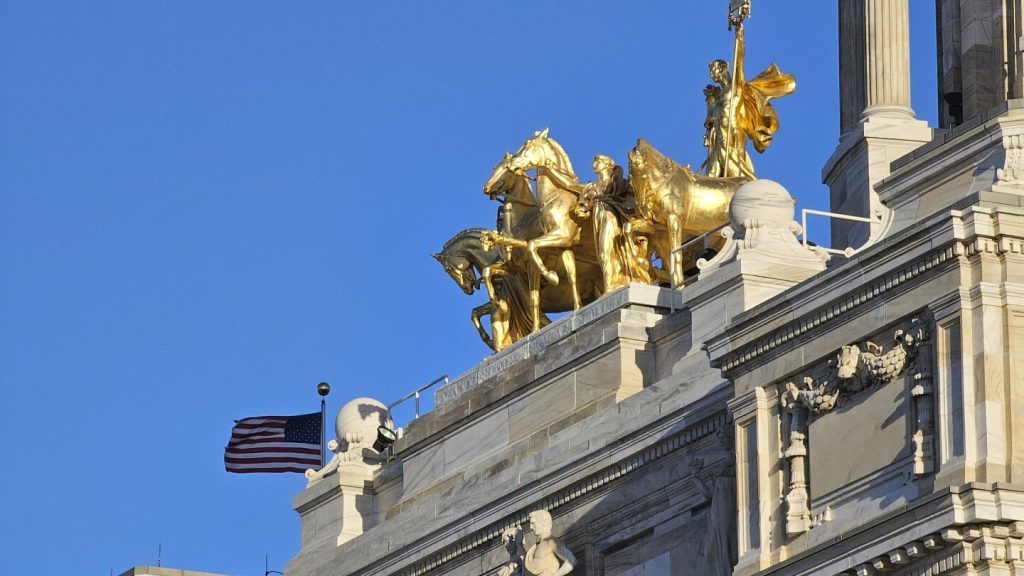The Minnesota Legislature is set to reconvene after the Easter break with a mix of bills on the table. Among the high-profile pieces of legislation are topics like sports betting, cannabis, rights for trans people, and infrastructure maintenance. The focus this session has been on policy proposals that don’t require significant spending, due to a limited budget. With less than two months until the adjournment deadline in May, lawmakers are working on various priorities.
The state’s $72 billion two-year budget was largely set last year, and with a surplus of $3.7 billion, there is a limited amount of additional spending planned. Governor Tim Walz and Democratic leaders have agreed to allocate about $541 million more, with a portion going towards emergency medical services in rural areas. Another significant issue was resolved early on, as a fix was signed to address an error that could have cost taxpayers $350 million next year. The bonding bill for public infrastructure projects will require bipartisan support to pass.
Sports betting is a hot topic in the legislature, with proposals to allow in-house and online wagering controlled by tribal casinos. Horse tracks are also seeking to be included in the legislation, with revenue-sharing agreements being discussed. The focus remains on responsible gambling practices, with measures to prevent problem gambling. Lawmakers are also making tweaks to last year’s law legalizing recreational marijuana, including considerations for social equity applicants and retail sales timelines.
Policing reforms have been a priority, with clear authority granted to school resource officers to address last year’s restrictions that led to officers being removed from schools. Policies on the use of prone restraints on students have been clarified, along with improved training and standards for officers. The Minnesota Voting Rights Act is also in the spotlight, aiming to address gaps left by the federal Voting Rights Act in terms of challenging discriminatory voting practices.
Religious organizations are at the center of a debate over exemptions from protections for gender identity added to state human rights law. Republicans have pushed for exceptions based on religious freedom, while Democrats have blocked these attempts, citing concerns for the LGBTQ+ communities. Efforts to enshrine protections for abortion and trans rights in the state constitution continue, with supporters aiming for a 2026 ballot initiative. Proposals for physician-assisted suicide have faced hearings but are not expected to pass this year due to insufficient votes.















